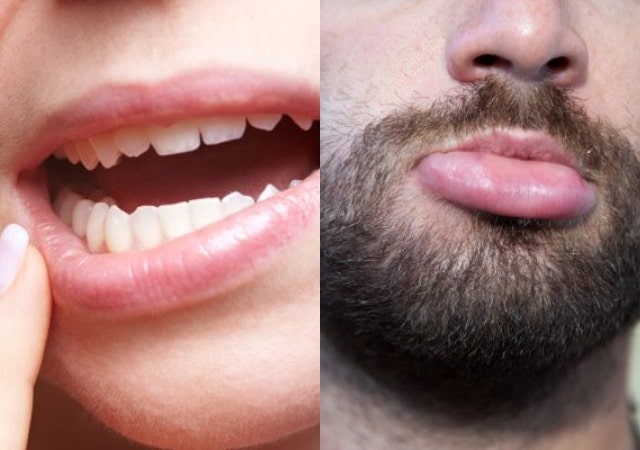It can be uncomfortable and frustrating when it happens, but could it also be more than a nuisance – perhaps a sign of a more serious health condition? It’s likely that you have experienced tingling or numbness in your lips before, but what does it mean? Read on to find out.
BREAKING: Doctors Can't Believe She Used This To Erase Her Wrinkles...
Where do sensations come from?
When we feel sensations, they are being communicated through the body’s nervous system, with messages transmitted by specialized cells called neurons, bundled in cords you know as nerves. The term “central nervous system” refers to the brain and the spinal cord, and the “peripheral nervous system” describes the nerves within the rest of the body.
Nerve damage within the peripheral nervous system is commonly known as neuropathy and can impact all parts of the body – including the lips. Many people with tingling lips get concerned that they may have peripheral neuropathy…but thankfully, that is not usually the cause of tingling lips. More often, lip-tingling is caused by temporary circumstances like weather patterns or conditions that cause skin inflammation or irritation.
Here are nine reasons why your lips may be feeling weird. Keep in mind that the first three reasons are the most common.
You are having an allergic reaction
Allergies to food or medicine can impact lips in a way that causes swelling under the skin, also known as angioedema. Knowing what you are allergic to and staying clear can help you avoid a reaction. If you experience a severe reaction or one that persists, be on the lookout for anaphylaxis – compromised breather, fainting, or collapsing.
Your lips are chapped and cracked
Dry and cold weather can leave your lips sore and cracked. This can cause a tingling sensation. The skin condition eczema can also cause lips to become sore and chapped, leading to tingling. Use an organic moisturizing lip balm to protect your lips from inclement weather to avoid cracking and tingling. If your lips are already cracked, apply a thin layer of coconut oil that will help them heal while offering protection.
You are having a panic attack
If you have ever experienced the troubling sensation of a panic attack, you know that it can bring about a feeling of pins and needles – even on the lips. If tingling is accompanied by other symptoms such as shortness of breath, shaking limbs, and racing heartbeat, it may point to a panic attack. Panic attacks can be uncomfortable and distressing, often lasting between 5 and 20 minutes. If you experience panic attacks regularly, consult a medical professional.
You might have lupus
Lupus is a difficult immune system disease to diagnose. This is mostly because it can impact so many parts of the body, including the nerves. Tissue around nerves can become swollen, causing pressure that interferes with nerves’ ability to transmit information. Problems with vision, a drooping eye or pain in the face along with persisting numb and tingling lips may be an indication of lupus. If you suspect lupus, consult a medical professional.
You might have Raynaud’s phenomenon
Raynaud’s is a condition that affects blood flow to extremities such as hands and feet, but can also impact the lips and tongue. When exposed to cold or stress, blood vessels shrink, which causes the feeling of extreme cold, tingling, and numbness. It can also cause hands, feet, and lips to turn white or blue. If you suffer from Raynaud’s, do your best to stay dry and warm, quit smoking, and reduce stress in your life.
You may have had a stroke
Strokes are caused by a lack of blood flow to the brain and are a serious medical emergency. Because the signs of a stroke can come on rapidly, it is very important to seek immediate medical attention if you believe you or someone else is experiencing a stroke. Here are the symptoms to watch for:
- Sudden numbness or weakness on one side of the body – including the lips
- Confusion and difficulty speaking
- Severe headache for no reason
- Drooping face, mouth or eye on one side
TRENDING: 1 Cup of This Melts Belly and Arm Fat (Take Before Bed)
You may have cranial nerve trauma
Cranial nerves span from the brain to the head and face and are responsible for controlling movement and sensation. If you hit your head and suffered a concussion, carnival nerves can become damaged. If the trigeminal nerve (responsible for sensation in the face), is damaged, it can result in a loss of sensation in the face, which includes numbness and tingling in the lips. Always seek medical attention for head injuries; they can be much more severe than they seem.









